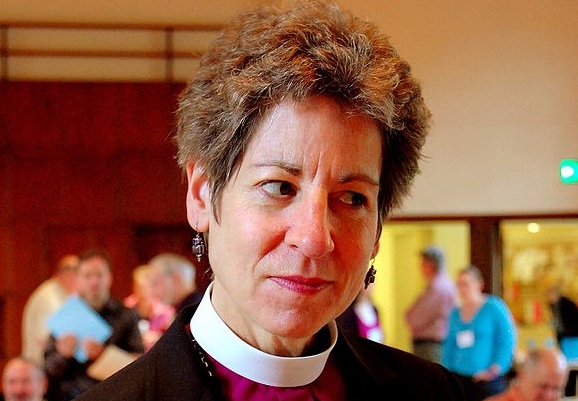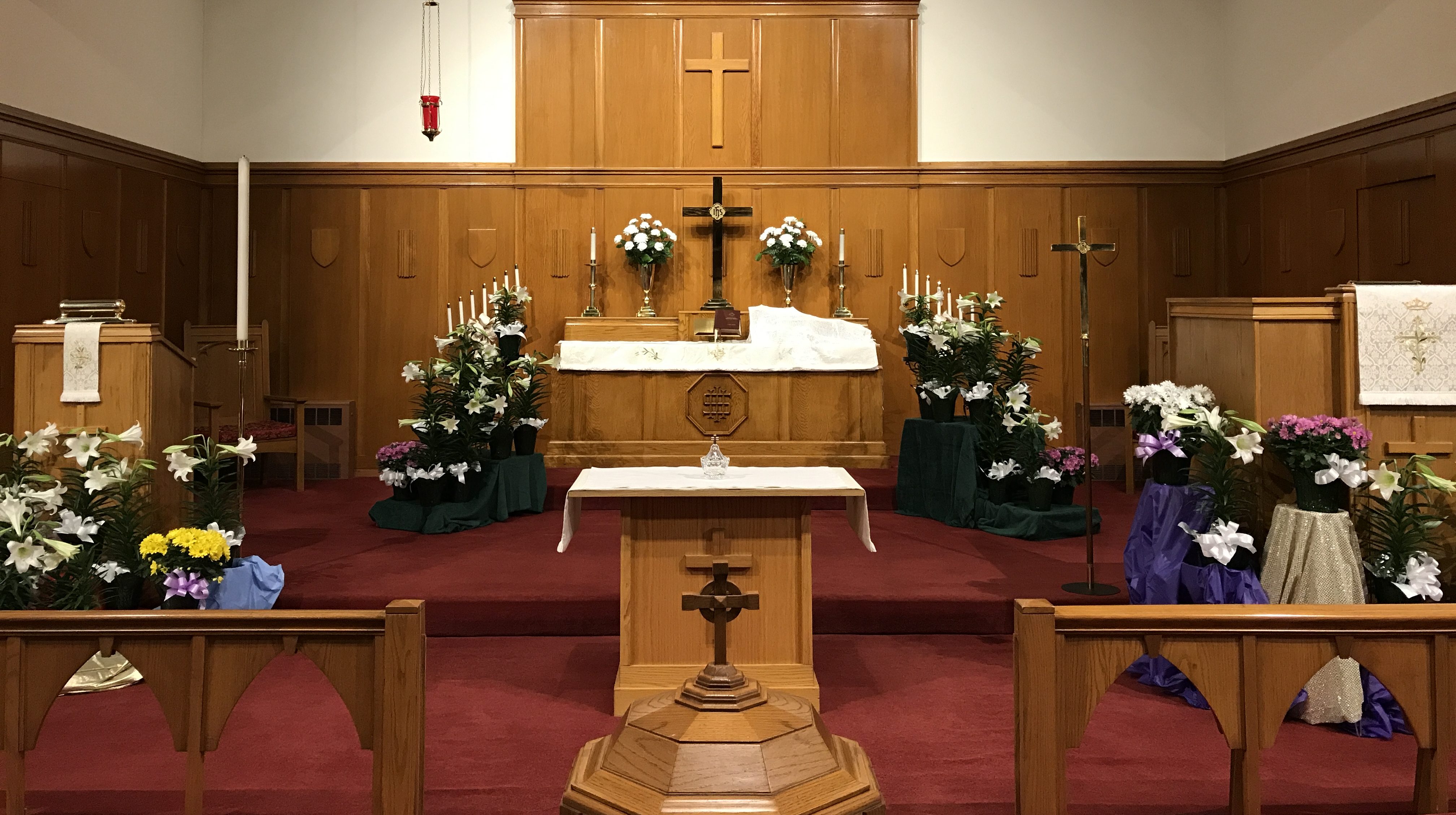HillsboroMom
Active member
The Thirty-nine Articles can be divided into eight sections based on their content:[57]
I'm not sure how that applies to anything I said.
The Thirty-nine Articles can be divided into eight sections based on their content:[57]
The thirty nine articles are grounded in the truth which is more than one can increasingly say about the CofEI'm not sure how that applies to anything I said.
Somehow, I knew you would respond in this manner.I'm not sure how that applies to anything I said.

Honestly, I don't know how some Episcopalians can, in good conscience call themselves Christians.
Things that cause people to stumble will come, but woe to anyone through whom they come. Jesus would never have said that would He.Honestly, I don't know how some PEOPLE can, in good conscience, call themselves Christians.
Some people, in this very forum, are barely human, let alone Christian, in their behavior.
But Jesus seems to love them all the same. So I guess I should, too.
I wonder HillsboroMom how your love for people is manifested.
The same half the gospel as you and the other half as well. Like the summary in James 1 what God wants is to look after widows and orphans and to keep from being poluted by the world.No need to wonder.
My love for people is manifested in many ways.
How is your love for people manifested?
- I donate time and money to many worthwhile causes.
- If I see someone struggling with something, and I can help, I do.
- I pray without ceasing. When necessary, I use words.
Most high church Episcopalians believe in the Real Presence, and some in Transubstantiation. In the Church I attend the sacrament is reserved in a tabernacle.Today the ELCA has open communion toward Episcopalians, and I expect that the Episcopalian Church USA and the rest of the ECUSA's Anglican Communion have the same policy. But the LCMS has what is often called "Closed Communion." Part of the theological background to this is that Luther rejected Communion with those like most of the founding Anglicans who rejected that the Eucharistic elements objectively have or are Christ's body. Luther made lots of arguments for the objective Presence, but one that sticks out in my mind as the most "Lutheran" was based on the plain reading of the institution of the Lord's Supper. Luther's foundational claim about Biblical interpretation was that you should just go by the meaning of the Bible alone. So he emphasized that Jesus' plain words about the Lord's Supper were that "This is my body," period, without any Ifs, Ands, or Buts.
Calvin's idea in contrast was that Jesus' actual body was only up in heaven, that the Natural Order prevented a body from being in two places at once, and that as a result, it was impossible for Jesus' body to be objectively on the Eucharist table. Luther complained that Calvin was using the Natural Order to deny Christ's miracle of His body being the Eucharistic food.
Most of the founding Anglican leaders agreed with Calvin's idea instead of Luther's. They concluded that people could only "eat" Jesus' body in some metaphorical sense, through their spirituality, and so non-believers like Judas could not be said to "eat" Jesus' body even though they put the "sacrament" or ritual bread in their mouths. As a result, they wrote in their foundational Articles of Religion, Article 29:
Luther rejected "fellowship" with those who took this view, saying,
The "Sacramentarians" whom Luther mentioned took the view that Jesus was only present in the sacrament or ritual in some metaphorical, indirect sense of spirituality, and that the sacramental physical food was not Jesus' body in an objective sense.
There have always been at least a minority of Anglicans who take the view that Christ's body is in the Eucharistic bread directly, even though their Article 29 entails the opposite.
The result of this is rather unexpected. On one hand, one of Lutheranism's foundational axioms was that only the Bible alone is the only authority, as opposed to treating Christian bishops and other Church writings passed down through centuries as additional authorities. And Luther taught that based on the Bible alone, Christ's body was objectively present on the Eucharist table, a teaching that matched the Church's Traditional writings.
The Anglicans in contrast taught that bishops and Church writings passed down are also authorities in addition to the Bible. Yet when it came to the Real Presence, most foundational Anglican leaders agreed with Calvin and most other Protestants that the Eucharistic food was not Jesus' body in the direct, objective sense. In keeping with their Anglican idea of respecting Tradition however, more than a few Anglican theologians have tried to interpret Church Tradition in accordance their denial of the direct Eucharistic presence.
We are no longer bound by the Articles of Religion. High Churches reserve the sacrament, and I believe have a higher view of the Sacrament than Lutherans - and I used to go to an LCMS. And many Episcopal and Anglican churches reserve the Sacrament - our Episcopal Church has a beautiful gold tabernacle. We also have an altar to the Blessed Mother. In the LCMS Church I attended for a while (after fleeing Spong and the Diocese of Newark - enough said), the sacrament was not reserved. And I wouldn't say that reserving the sacrament makes the Episcopalians "pro-Catholic," after all the Church is Catholic. Don't give the word away to the Romanists. There is also the problem of the validity of Lutheran sacraments since they have no Apostolic link in their orders.Let me help illustrate this more clearly.
In Roman Catholicism, Lutheranism, and Eastern Orthodoxy, we have what is called "reserving" the host. Clergy can consecrate their Eucharist food and then hold it some place special until it is used. The idea, including in Lutheranism, is that the physical bread is objectively Christ's body. The space reserving the food is sacred even when there is no liturgy going on. One Lutheran told me that this is why Lutherans have a candle lamp lit in the room with the host even when there is no liturgy going on.
In this photo from Grace Evangelical Lutheran church, you can see the candle lit in the upper left.

In contrast, the Anglican Articles of Religion complain about Christians reserving their Eucharist. Article 28 claims:
The Low Church Anglicans don't do host reservation, and I found Anglican rules saying that it was not allowed in the Anglican church for a long time. I found some very recent Anglican rules saying that it is allowed and some pro-Catholic Anglicans do this. The background for the Articles of Religion's complaint against reserving the host is that most foundational Anglicans rejected an objective presence in the food, so they rejected the practice of Host reservation. For them, since the food could not objectively be Christ's body, there was no point in reserving it outside of the ritual, and so to reserve it would be purely "superstition" in their POV, which is what their faction called Transubstantiation and pilgrimages to monasteries.
